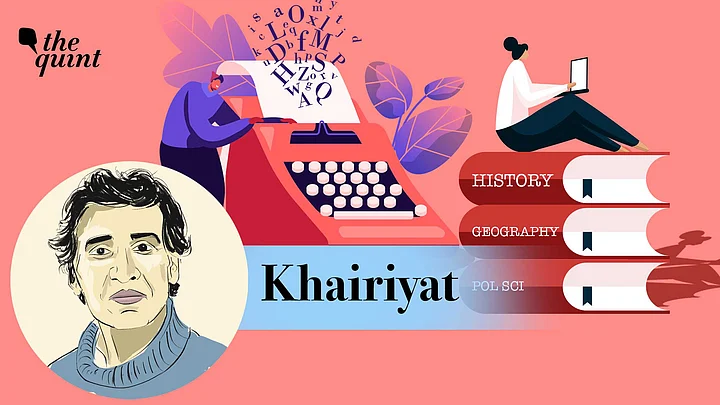Something is wrong with the way many scholars and academics write about literature. I am not talking of book reviews and the occasional literary essays in those few newspapers or magazines that still retain space for those. I am talking about books on literature. And I am talking of books by scholars who have spent years studying literature.
There has been an increasing narrowness—a limitation due to specialisation—in such books over the past hundred years or so. This is not simply because of the demands of an academic discipline. Physics, biology and economics are even more specialised and demanding as disciplines than the study of literature. But you have major researchers and academics from these fields regularly writing books aimed at the popular intelligent readership.
Subject Specialists Often Catered to a Larger Reader Base
Think of the Nobel prize winners Amartya Sen and Paul Krugman in Economics: their very specialised and academic work is matched by more popular renditions of their thinking for larger readerships. Whether it is Sen’s The Argumentative Indian or Krugman’s long essay, ‘A Country is not a Company’ what you encounter in such texts is the ‘debate book’ written by an expert from a discipline for the larger intelligent readership.
You can also think, in fields like physics, medicine or biology, of people like Michio Kaku, Siddhartha Mukherjee, Richard Dawkins or even Stephen Hawking. These are (or were in their lifetimes) serious scientists in their fields. But they also wrote books, sometimes controversial ones, for a much larger readership.
Mostly these books drew upon their disciplinary perspective to make larger points of vital interest – whether they agreed or not – to other intelligent readers from outside their disciplines.
Even in the humanities, such as in history or political thought, you have a number of scholars – William Dalrymple and Shashi Tharoor are obvious examples who use disciplinary and academic research to write popular books that can potentially be read by everyone. These books again, engage with the world in ways that go beyond the confines of the discipline.
On the other hand, literary scholarship seems to be frightened of sticking its neck, or even finger, out. There are a few books about writing, usually aimed at the Creative Writing academic industry in USA and UK, but that is another field, and in any case almost as limited. Who, after all, cares about the mechanics of writing apart from some aspiring writers?
So, what academics write in the actual field of literary scholarship is meant almost entirely for their academic peers with the occasional exception of some biographical book on popular literary figures like William Shakespeare. Even when they write about legendary popular music icons such as Bob Dylan, they make the writing essentially uninteresting and inaccessible to all but university students of literature and related fields!
Do Academics Writing Literature Censor Their Thoughts?
This is strange, because they write about literature and literary writers are seldom afraid of sticking their necks out. VS Naipaul, Salman Rushdie, Michel Houellebecq, Arundhati Roy: there is a long list of writers of literature who, while occupying different political positions, have not been afraid of speaking (or writing) their minds. So why is it that literary scholarship is so afraid of writing the equivalent of debate books about a field – literature – which is and has always been about complex debates, which has always engaged not just with language but with life out there?
True, you might argue, with some justification, that there are ‘radical’ literary studies, for instance of postcolonial or queer literature. But these studies are confined to the field – often even a subfield. They are often written in that manner: for instance, the heavy, and at times heavyhanded, use of theory is meant to frighten away everyone except the advanced student.
I am convinced that literary scholarship, especially in universities (all over the world), has essentially betrayed literature. This is partly a structural failure: the pressures of tenure and academic publishing (with their very programmatic categories and readers) have reduced the space for a wider engagement with literature.
Literary scholars are too afraid of writing the kind of book that a Kaku or Sen can dare write: their academic reputations, and sometimes jobs, are at risk. They play it safe and keep the critical bloodshed within the confines of their increasingly boring seminars and conferences.
Because, of course, there is bloodshed even among literary scholars. Anyone who has attended a major Shakespeare conference in the West, knows that, figuratively speaking, there are more dead bodies lying about in the conference room at the end of the day than there are on the stage at the end of a tragedy by Shakespeare! But this is all an internal matter, heavily footnoted, largely redundant like their books: literary scholars do not risk talking about literature at large or talking in ways accessible to all. When they retire, they might write a memoir or a novel, but that is another matter – and another field.
Alas, literary criticism, which was until recently an engagement with the world through literature (which is itself an engagement with the world), has been segregated into academic writing (criticism or theory) and creative writing-type ‘help books’, etc. The sort of debate books that literature and writing about literature produced in the past – and that other fields, even specialised ones like economics or biology, still do – have died out in literary publishing and, especially, academia.
(Tabish Khair, is PhD, DPhil, Associate Professor, Aarhus University, Denmark. He tweets @KhairTabish. This is an opinion article and the views expressed are the author’s own. The Quint neither endorses nor is responsible for them.)
